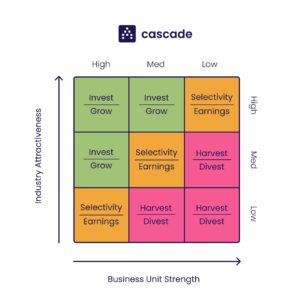
The demand for Home Health Aides (HHAs) has skyrocketed in recent years, driven by an aging population and an increasing need for in-home caregiving services. According to the U.S. Bureau of Labor Statistics, the employment of home health and personal care aides is projected to grow by 25% between 2021 and 2031, much faster than the average for other occupations. This demand has reshaped how individuals can pursue HHA certification, with online courses gaining significant traction.
Online HHA certification provides a flexible, accessible, and efficient way to enter this growing industry. Training entirely online allows aspiring HHAs to learn essential skills and prepare for certification at their own pace—without sacrificing their current commitments. This blog explores the rising popularity of hha certification online programs, reveals fascinating statistics about their adoption, and dives into why they’re shaping the future of healthcare training.
The Growing Popularity of Online HHA Certification
Online learning across sectors has seen unprecedented growth, with healthcare training leading the charge. Specifically, the online education market in healthcare is expected to grow at a 12.68% annual rate from 2022 to 2027, according to market research firm Technavio. The shift toward online HHA certification programs aligns perfectly with this trend, providing flexible training options, particularly for aspiring caregivers managing other responsibilities, such as part-time jobs or family commitments.
Several factors are driving this boost in popularity, including advancements in technology, the adaptability of digital platforms, and the cost-effectiveness of online programs compared to traditional classroom models.
Key Statistics Supporting the Rise of Online Certifications
- A report by Statista indicates that in 2022, 63% of U.S. adults preferred online learning, primarily for convenience.
- 30% of healthcare training programs now integrate virtual learning, according to a 2023 survey by Education Weekly.
- Industry data shows that 35% of HHAs enrolling in 2022 completed their certification requirements entirely via online platforms—a number expected to climb to 50% by 2025.
These statistics shed light on the undeniable shift toward internet-based health certifications. Importantly, online HHA certification eliminates the barriers that might limit traditional healthcare training, such as geographical restrictions and rigid schedules.
Why Home Health Aide Jobs Are Thriving
Before dissecting the specific advantages of online certifications, it’s essential to understand why HHAs are more relevant than ever. The U.S. is home to more than 54 million adults aged 65 and older (as of 2022), a demographic that will significantly expand as Baby Boomers age into retirement. Additionally, chronic diseases and disabilities are growing more prevalent, further driving the need for in-home caregiving services.
According to a 2022 study published in Health Affairs, 75% of seniors prefer aging at home rather than moving into traditional nursing facilities. When paired with the rapidly increasing older population, this has fueled the vitality of the $113 billion in-home healthcare sector. HHAs are often the backbone of this system, delivering essential support and companionship to millions of individuals across the U.S.
What Online HHA Certification Programs Typically Include
Online HHA certification prepares students for various real-world scenarios they’ll encounter as aides. These programs emphasize both theoretical knowledge and practical applications, ensuring learners feel confident stepping into caregiving roles. Here’s what aspiring HHAs can expect to cover in their online training:
- Core Skills in Patient Care
HHA certification programs focus on building the necessary caregiving and hygiene management skills, including personal grooming for patients, bathing assistance, toileting support, and dressing assistance. Online platforms typically include video tutorials, live mentor sessions, and practice assignments simulating real-life caregiving situations.
- Communication and Rapport Building
Strong interpersonal communication is a must-have skill for HHAs, particularly when working closely with older adults. Students are introduced to techniques for fostering trust, handling emotional challenges, and communicating effectively with patients and their families.
- Nutrition and Meal Preparation
Online courses often highlight basic nutrition and healthy meal preparation, key components of in-home caregiving. Some programs even provide demos of diet planning tailored for common patient health conditions, such as diabetes or hypertension.
- Emergency Response Training
Given the unpredictable nature of caregiving, emergency response training is incorporated into these programs. Online modules include CPR training, first aid basics, and resources for recognizing the early signs of medical emergencies.
- Legal and Ethical Training
Online certifications also cover the legal parameters associated with working in healthcare, including patient privacy (HIPAA compliance), recordkeeping, and the ethical responsibilities of home health aides.
Other optional modules include tips for taking care of mental health as an HHA and career counseling to help graduates land their first job in the healthcare sector.
Technological Tools Making Online HHAs Training Successful
Online HHA programs utilize cutting-edge tools to enhance the learning experience and bridge the gap between theory and practice.
- Simulation Software: Platforms often include virtual caregiving simulations allowing students to practice assisting patients in lifelike scenarios.
- Interactive Webinars: Live webinars and Q&A sessions with certified healthcare professionals give learners invaluable insights and the opportunity to ask questions in real-time.
- Mobile Access: Many platforms offer downloadable apps, enabling students to complete lessons from their smartphones while on the go.
- Knowledge Tracker Tools: Progress-tracking dashboards allow students to monitor their learning milestones and revisit weak areas before exams.
These technological innovations make online certification highly dynamic and student-centered.
Challenges in Traditional HHA Education
The emergence of online HHA certification has also been propelled by challenges inherent to traditional forms of healthcare education. These include rigid classroom schedules, which restrict flexibility, and the necessity for students to commute or relocate, often adding significant costs.
Statistics reveal that 45% of individuals interested in HHA roles hesitate to enroll in in-person training owing to such logistical concerns. Online programs have counteracted these hurdles by making quality training available virtually anytime, anywhere.
Success Stories in the Digital HHA Space
Many professionals credit online HHA certifications for kickstarting fulfilling careers. Consider Maria, a working mother in Florida who completed her certification online while balancing her kids’ schedules. “I needed something flexible that fit into my lifestyle. Getting certified online was the best decision I ever made,” she shares.
Another graduate, Kevin, based in Los Angeles, appreciated the community aspects integrated into online platforms. “The discussion boards felt like a classroom,” he explains. “I learned not just from instructors but also from my peers who were working in different states.”
These success stories showcase the vast potential for online HHA certifications to empower professionals and revolutionize caregiving training.
What Lies Ahead for Online HHA Certification
Given the accelerating trend toward digital healthcare education, the future of online HHA certifications looks promising. Experts predict a significant transition within the next decade, fueled by advancements in e-learning technologies like augmented reality (AR) caregiving simulations and AI-driven personalized course recommendations.
Furthermore, policymakers and healthcare organizations are likely to continue investing in virtual education with programs aimed at underserved regions, addressing caregiver shortages nationwide.
One thing remains clear—online HHA certifications are here to stay, pushing the healthcare industry toward more accessible, efficient, and inclusive training methodologies. For those eager to join the thriving healthcare workforce, these programs provide an adaptable and impactful starting point.
By leveraging the opportunities offered by online learning platforms, ambitious individuals have everything to gain—not just a certification, but the chance to make an essential, life-changing difference one patient at a time.







